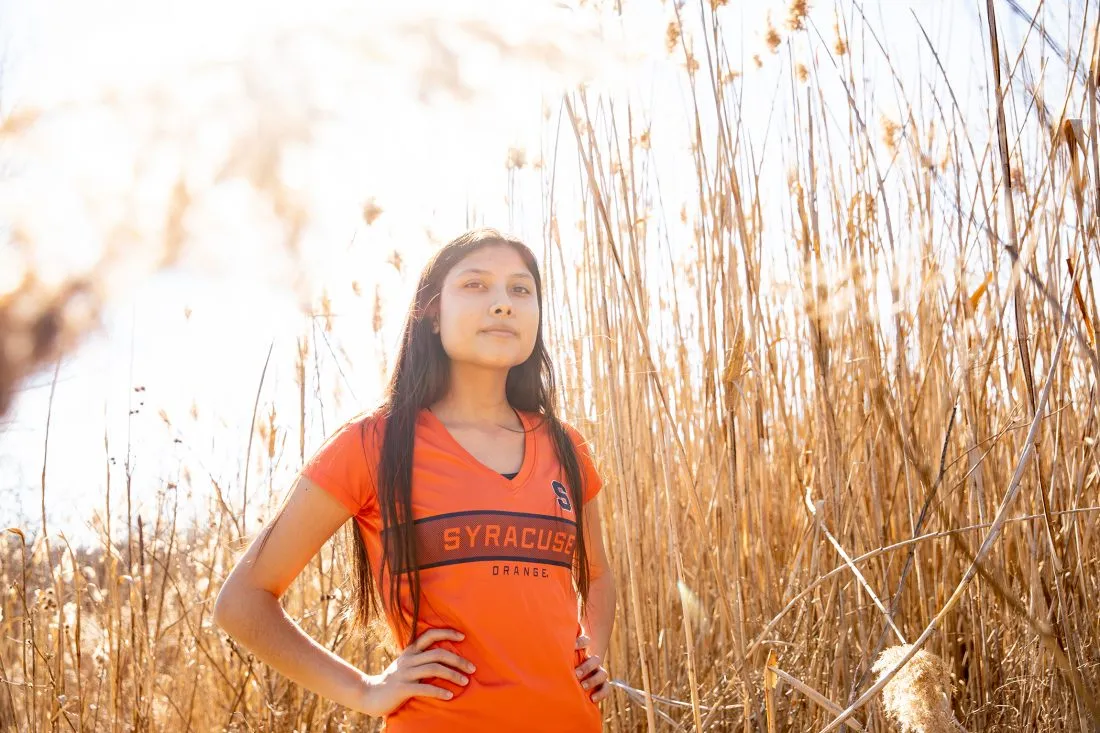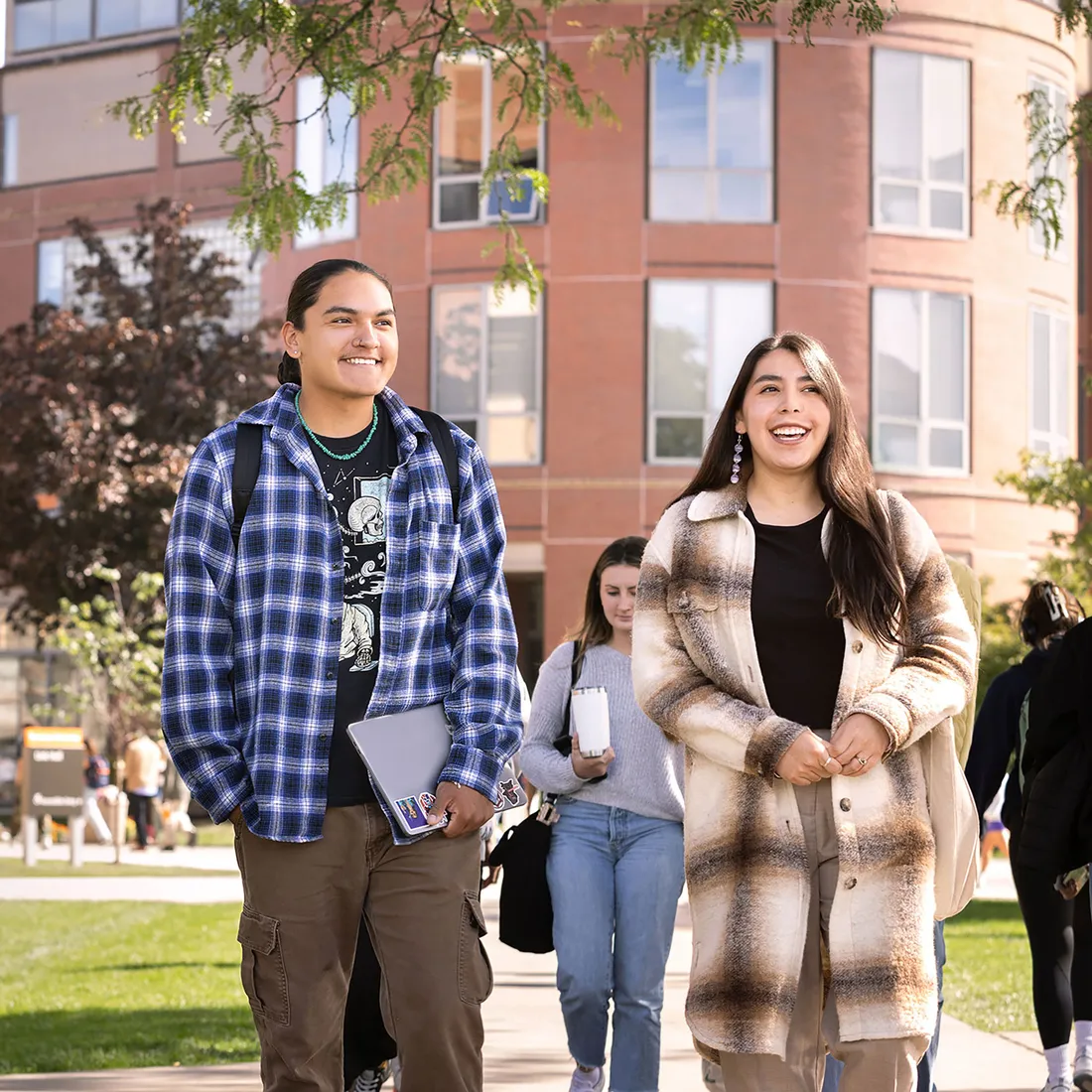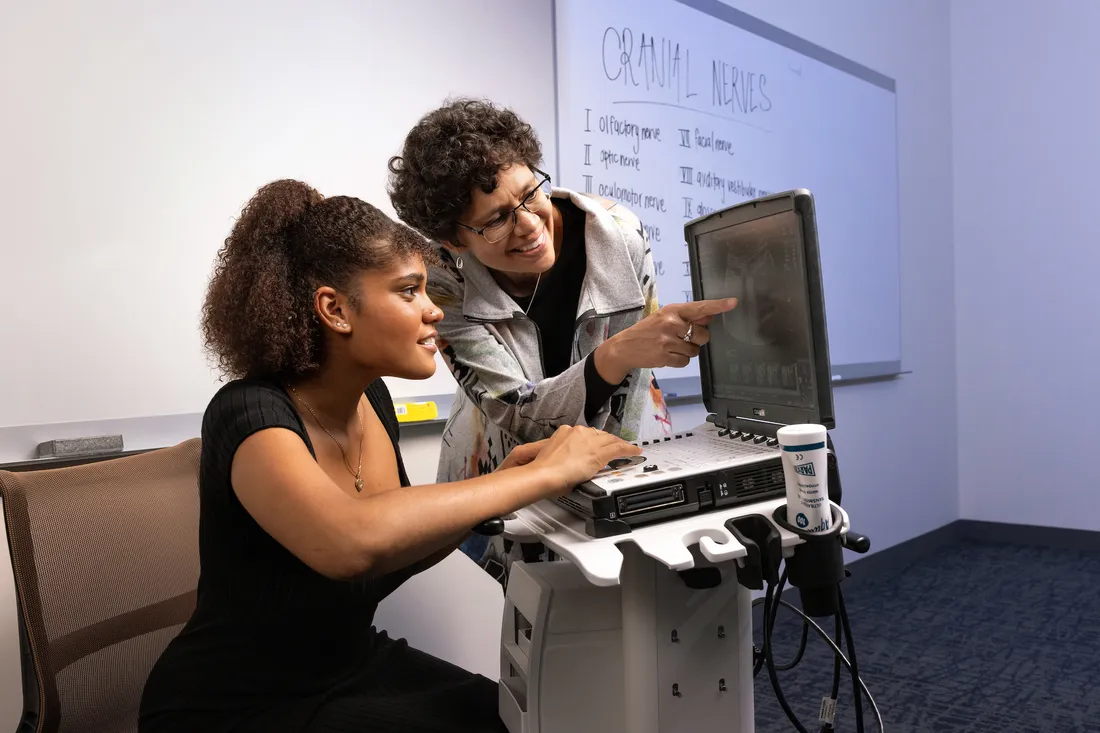On any given day this summer, Logan Booth ’21 might be found unpacking a case of portable studio equipment and carefully editing the recording inside. She’s producing audio interviews with Indigenous students as part of an internship with Sound Beat, a National Public Radio show featuring archived recordings from Syracuse University’s Belfer Audio Laboratory and Archive.
The post-graduation internship calls upon the expertise Booth has gained as an English and textual studies major in the College of Arts and Sciences and public relations major in the S.I. Newhouse School of Public Communications. It also draws on her passions—she has been fascinated with photography, videos and storytelling since she was a child. The project is one of many ways she promotes her heritage as a member of the Seneca Nation residing on the Onondaga Nation near Syracuse. For Booth, documenting current students’ experiences to provide knowledge for the future reflects the value of the Good Mind, a traditional teaching of the Haudenosaunee Confederacy. According to the Haudenosaunee, being aware of our thoughts and intentions causes our spirit to grow and helps us fulfill our purpose on Earth. “Practicing the Good Mind, we can help others in future generations of our community,” Booth says.

A Haudenosaunee Promise Scholarship recipient, Booth takes great pride in representing the young Native women of her community at Syracuse University.
A first-generation college student and a Haudenosaunee Promise Scholarship recipient, Booth takes great pride in representing the young Native women of her community at Syracuse University. She acknowledges there were challenges at first. On campus her first year, she struggled with homesickness and adjustment to college life. But before too long, she says, she found her communities among some 350 Native American students at the University.
At Syracuse, I’ve been able to stay close to my culture and my identity and still be the very best student I can be.
Logan Booth ’21
During a three-day focused orientation program for new Indigenous students, Booth was introduced to specialized resources that helped her navigate what she says can feel like “two worlds” to a modern Haudenosaunee college student. She recalls occasions when she attended a ceremony at the Onondaga Nation and had a class on campus soon after on the same day. She needed to build effective time management skills to maintain her involvement with her traditional culture and community, while also being fully present as a University student. “My professors seemed to understand that the traditional part of my identity is very important to me,” Booth says. “At Syracuse, I’ve been able to stay close to my culture and my identity and still be the very best student I can be.”
A Mentor and a Mentee
In addition to her involvement with Onondaga Nation culture and traditions, Booth has been an academic tutor for young people in her home community, responding to a need that developed as a result of remote schooling during the pandemic. Every week during her senior year, she has helped students in grade school through high school—including her brother Arrow—with their homework assignments. The tutoring takes place online and on-site at the Onondaga Nation School, where Booth was once a student herself. She says it’s rewarding to pass along the value of critical thinking she’s learning at Syracuse, and all the possibilities she’s exploring. “I know I’m having an impact on students when they see that each success leads to the next one,” she says, adding that she would have benefited from this type of peer support when she was in school and is happy to offer it to younger generations.
Booth has been on the receiving end of such uplifting mentorship from other Native American members of the University community. She says Scott Manning Stevens, citizen of the Akwesasne Mohawk Nation and director of the Native American and Indigenous Studies Program, has taught some favorite courses in her minor and has been a valuable resource and colleague. “He has a helpful perspective on the experience of a Native student, a Native studies expert and a Native professor,” she says.
Throughout her time as a student at Syracuse, Booth says she has also cherished her involvement with the Native Student Program through the Office of Multicultural Affairs and its director, Regina Jones. A member of the Oneida Nation and a resident of the Onondaga Nation, Jones works with Syracuse University students, faculty, staff and families on initiatives that help Indigenous students transition to college and remain connected with their heritage, which is recognized as key to the success of their college experience. “Regina Jones has the ability to make anyone feel at home,” says Booth. “Having her here really helped me, in my best moments and my worst.”
Connected Communities

Tutoring schoolchildren is just one way Logan Booth shares her commitment to helping future generations of her home community of the Onondaga Nation.
Booth also feels bonded with her peers in Indigenous Students at Syracuse (ISAS), a community that celebrates traditions through projects and activities on campus. During her sophomore year, the student organization put on a major runway fashion show for Native American Heritage Month featuring members from many nations and areas of study. Booth oversaw public relations and helped plan for the event. “The show represented our people through three themes: traditional regalia, a mix of contemporary with reflections of longhouse and smokehouse styles, and contemporary interpretations of traditional dress,” she says. Participants were from the Onondaga, Seneca, Mohawk and Tuscarora nations, among others. Booth went on to serve as secretary for the group, and in her senior year she has helped launch a pilot program for Indigenous students in which upper-class students are paired with first-year students to serve as mentors.
I recommend that all students—maybe especially Native students—go abroad if they can. It’s an incredible experience.
Logan Booth ’21
Booth’s college experience has also led her to adventures far beyond the communities she has known. Thanks to the Haudenosaunee Promise Scholarship, she studied abroad last year, taking courses on Shakespeare and fashion media in London and traveling to Madrid before the pandemic ended the program early. “Being so passionate about and involved in my home community, it was amazing to be in a land outside my own,” she says. “I recommend that all students—maybe especially Native students—go abroad if they can. It’s an incredible experience.” And, after participating in competitive volleyball throughout high school and playing on the practice team at Syracuse for two years, Booth has enjoyed her community of club volleyball. “We have fun, and we’re all connected just by the love of volleyball,” she says.
While she is producing those audio interviews for future generations this summer, Booth will also pursue a job as a media practitioner and participate in her hobby of traditional smoke dance competition. “It’s important for me to keep broadening my perspective,” she says. “It inspires me, because I want to represent my culture and communities the best way I can.”


